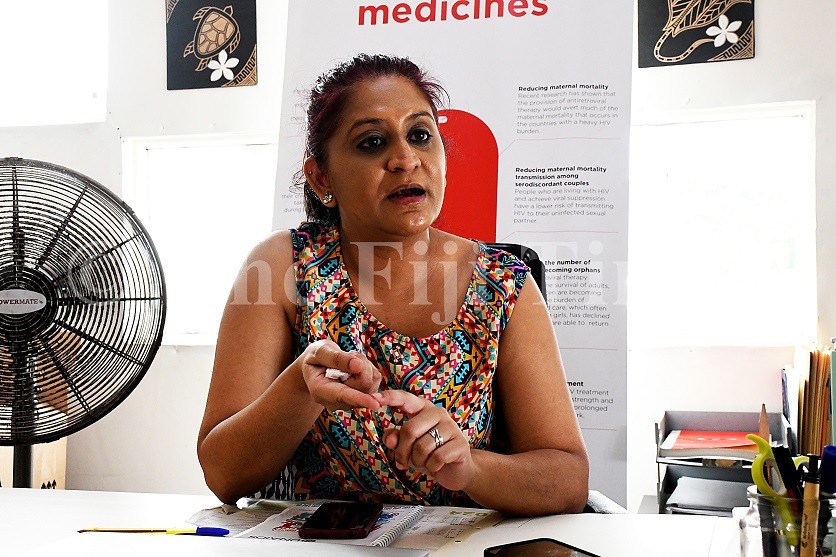A rising number of new HIV transmission in the country has ben attributed to the practice of chemsex, where drug users pop pills, share needles and engage in group sex.
The trend is worrying health officials, who now have to work with new strategies to address this problem.
Senior Medical Officer in Charge of the Central and Eastern Division’s Sexual and Reproductive Health Clinic Dr Dashika Balak says chemsex has also posed a challenge for medical professionals who were already working hard to address the new wave of HIV cases – which is being further aggravated by drugs and high risk sexual behaviour.
Health authorities are worried about young drug users who engage in chemsex, a practice where users pop pills and inject drugs while engaging in unsafe group sex.
This concern was disclosed by the senior medical officer in charge of the Central/ Eastern Division’s Sexual and Reproductive Health Clinic Dr Dashika Balak.
Speaking to this newspaper, she said this was one of the reasons for the high number of new HIV cases that clinics were receiving across the country.
Dr Balak said a pill mostly used by those groups of drug users was ‘pop us’ – a pill designed to make the user so high they could go days without food, water and sleep.
“Chem sex is basically a practice that people are engaging in where they take drugs, which a common one that is being called on the streets is ‘pop us’, which is a tablet or pill and they even inject the drug,” said Dr Balak.
“They do it as a group and when they get high, they have sex.
“So, it is like an organised sex party or orgy, and they last for days.
“It is happening in Fiji.
“It was happening before, but no one was really talking about it, but it is all coming out because drugs are involved.
“Especially with injecting drugs, they can last for days without taking food, water, or sleep.
“They have continuous sex, and they have these different sexual partners.
That is another high-risk way of transmission.”
Dr Balak said this crisis was one of the reasons the Government was taking a proactive approach to prevent the wave of new cases from increasing.
“For now, all we can do is ask them to come in with their partners and all of the people they had slept with but even that becomes a challenge because some of them do not remember who they slept with because they were high.
“So, we advise them to practise safe sex and not to share needles but once our new prevention programs are factored in then we can hopefully help in reducing these high numbers.”
In Parliament last week, Minister for Health Dr Atonio Lalabalavu said HIV numbers jumped from 245 in 2022 to 415 in 2023.



